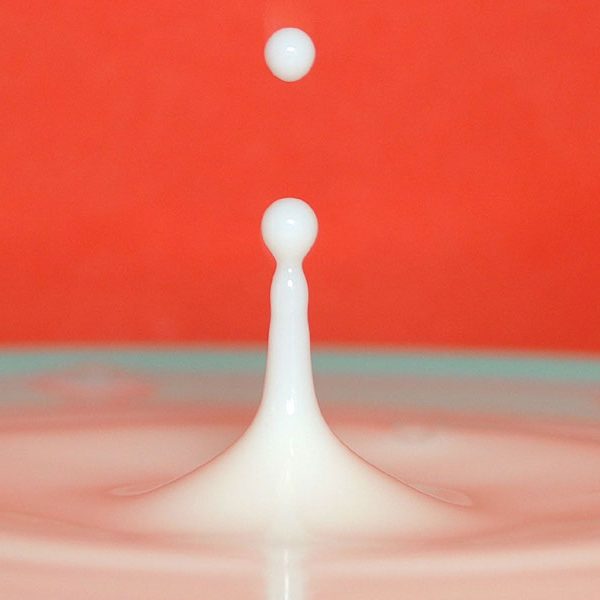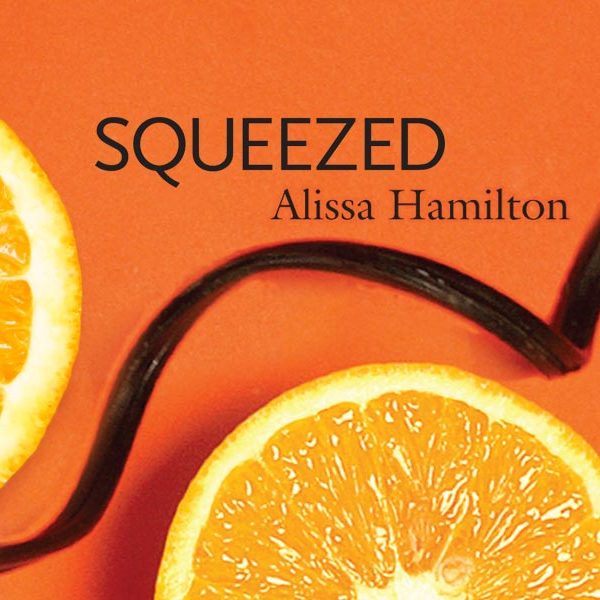Nudging Nudge into the Supermarket
This article by Alissa Hamilton was originally distributed on the Foodforethought listserv.
Ever wondered why breakfast without OJ seems incomplete? If you thought about it you might say orange juice is a good source of vitamin C, or it's part of a balanced breakfast. These answers would put you in the company of Edmund Burke, who believed that traditions grow out of generations of wisdom.
In a footnote to their new book Nudge: Improving Decisions About Health, Wealth, and Happiness, Richard Thaler and Cass Sunstein challenge the Burkean assumption that social practices necessarily arise from the tried and true judgments of people over time. The authors offer a different explanation for many of the long-standing practices we engage in each day: the nudge factor. They could have used the convention of drinking orange juice for breakfast as an example.
Nudge's premise is that we, unlike the rational actors upon which the legitimacy of traditional economics depends, do not always act in our best interest. The authors highlight a major reason why: "people tend to be somewhat mindless, passive decision makers." They thus maintain that we could often use a nudge in the right direction. The meat of the book tackles the difficult questions how we can be, and when we should be nudged.
To answer how we may be and are nudged, Thaler and Sunstein introduce the "choice architect," whom they define as the person/people responsible for "organizing the context in which people make decisions." They choose Carolyn, the director of food services for a city school system, to illustrate. They explain how Carolyn's decision to put the apples or French fries at eye level organizes the context in which students select what to have for lunch.
The example got me thinking more about how Nudge applies to the choices we make about the foods we commonly buy. Having spent the past few years researching the rise in popularity of commercial orange juice, I read the book with juice in particular on my mind. The package designer is the Carolyn of the orange juice world. It is not by chance that most orange juice comes to us in milk cartons. Back when milk symbolized freshness, processed orange juice manufacturers chose the milk carton as a way of saying our product is fresh too. Even though it wasn't, the association was generated and the context for making decisions about orange juice created.
To answer the second question, when we need to be nudged, the authors conclude that: "people are most likely to need nudges for decisions that are difficult, complex, infrequent, and when they have poor feedback and few opportunities for learning." They extrapolate: "We are more likely to need more help picking the right mortgage than choosing the right loaf of bread." They thus implicitly set the difficulty of the mortgage decision as a kind of threshold for meeting the first criterion, thereby effectively dismissing the grocery list from their discussion of when nudges are needed. Here the authors ought to be nudged to think twice.
Perhaps having been primed—a term the authors use for the power that a "hint" of an idea can have in triggering associations that affect behavior—by advertising, Thaler and Sunstein falsely assume that choosing the right loaf of bread is relatively simple. But even the seemingly most straightforward supermarket foods are more complex than we might imagine. Take orange juice again as an example.
For starters, most of us think Florida when we think orange juice. One airline steward told me he gets far more requests for orange juice on flights to Florida. The truth is most orange juice comes from Brazil. According to statistics published by the Florida Department of Citrus, Brazil produces almost three times as many oranges as Florida. The majority of these oranges are processed into juice for export. Many of us also believe ads that say orange juice is "100% pure" and "natural." But even "Pure Premium Not From Concentrate" is heated, stripped of flavor, kept in storage for up to a year, and then re-flavored before packaging.
Although the decision we face as we stand in front of the innumerable types of orange juice in the refrigerator section of the supermarket appears easy, it isn't. And the repercussions of our decision are not inconsequential. A big reason why orange juice production has moved to Brazil is wages there are low. Suddenly the morning glass of orange juice doesn't look so sunny when we realize it is the product of backbreaking labor rather than the paradise we see in OJ ads on T.V.
Thaler and Sunstein acknowledge that eating is "one of the most mindless activities we do." They leave out buying food, which is up there too. While the former leads to overeating, the latter is equally unhealthy. Mindless buying means we may choose foods we would not, if we knew more, want to, whether for philosophical, health, or ethical reasons.
Returning to the initial question why so many of us drink orange juice for breakfast, Thaler and Sunstein have news for the Burke-styled traditionalists among you: our actions and decisions are not as deliberate as you might expect. In the aforementioned footnote the authors observe that social practices "often persist not because they are wise but because . . . [i]nertia, procrastination, and imitation often drive our behavior." They further note that some traditions "can last for a long time, and receive support or at least acquiescence from large numbers of people, even though it was originally the product of a small nudge from a few people or perhaps even one."
The orange juice-for-breakfast routine is a case in point. Almost all of America and much of the world drink orange juice because of the nudges of a few rather than the collective wisdom of many. The first nudge came from the Florida Citrus Exchange, a grower organization that evolved at the turn of the twentieth century to deal with Florida's chronic surplus of oranges. The Exchange initiated a program whereby it distributed juice extractors on a premium basis to households across the nation to encourage people to drink their oranges and thus consume more of them. Next came a nudge from the Quartermaster Corps, which needed a convenient way to send vitamin C to troops overseas during World War II. Thanks to funding from the federal government and Florida state, Frozen Concentrated Orange Juice ("FCOJ") was born in 1948. Too late for the war, FCOJ arrived just in time for a civilian society warming to the convenience of frozen foods. The final nudge came from advertising. Bing Crosby began crooning Minute Maid's FCOJ into the hearts of Americans and before long the nation was won over. According to the USDA Economic Research Service, in 1940, before the invention of FCOJ, per capita consumption of orange juice was 0.08 gallons. By 1950 it had grown exponentially to 0.93 gallons. Today per capita consumption hovers around five gallons.
We may say we drink orange juice because it's a good source of vitamin C. It is for soldiers on the battlefront without access to fresh fruits and vegetables.
For the rest of us there are many fresh fruits and vegetables, a whole medium orange for one, which boast more vitamin C than a glass of processed orange juice.
Thaler and Sunstein write, "imitation" and "inertia" often drive our behavior. The story of OJ shows how marketing does too. There is no contesting the authors' "bottom line:" "people are, shall we say, nudge-able."
Nudge endorses libertarian paternalism: its authors propose policies that maintain freedom of choice while steering people in desirable directions. When most of us walk into the supermarket, we do not have true freedom of choice. Our supermarket decisions cannot but be mindless because we lack critical information. I have studied orange juice for years, so my choice as to which type to buy, or whether to buy it at all, is truly free. Not so for my choice as to which loaf of bread to buy. Maybe I want the one that doesn't contain oil extracted from soybeans that have been genetically engineered to withstand more herbicides. Without more information, I am not free to make that decision. Contrary to what the authors might think, we do need help picking the right loaf of bread.
In their book, Thaler and Sunstein assume the role of choice architect. One of their proposals is to redesign the marketplace so that companies selling intricate products such as cell phone and insurance plans would have to make relevant information more visible and easily comparable. Similarly we need to think about how to redesign the supermarket to make the critical yet currently invisible information about how food is produced more accessible. Establishing a right to that information would be a start.
If you, like me, want to truly be free to choose the foods you want to buy, I suggest you pick up Nudge before your next trip to the supermarket. If we put our heads together we could use our collective wisdom to reclaim the nudge from the grip of special interests and turn it into a tool to guide our shopping carts in ways that will make us better off. Enough blindly following others and being swayed by the nudges of advertisers. I want the right to know where to find the orange juice that has not been squeezed from the hands of exploited labor. Don't you?


